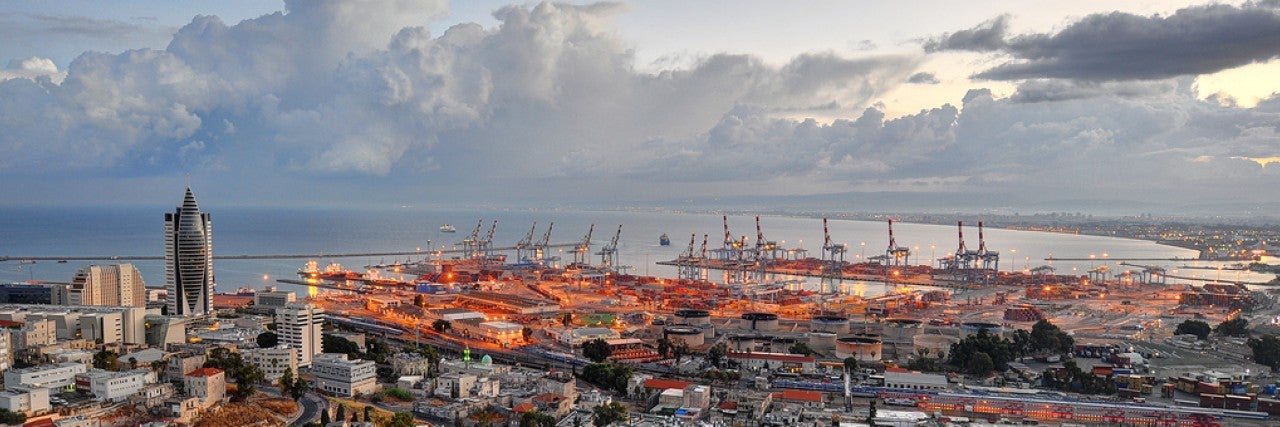February 26, 2018 — Jerusalem, Israel
By Eran Lerman
Amidst the troubling domestic controversies swirling around Prime Minister Netanyahu and the ongoing tensions on Israel's northern border and facing Gaza, a striking piece of good news was a welcome respite. The consortia owning Israel's two productive gas fields in the Eastern Mediterranean—Tamar and Leviathan (with a U.S. company, Noble Energy, an important but not a majority partner in both)—have signed a huge gas deal with an Egyptian company, estimated at $15 billion dollars over 10 years. The buyer is the Dolphinus Group, an apparent cover name for a range of Egyptian business interests not yet keen to have their names associated with Israel, but acting with the full support and blessing of the government.
The timing, as Egyptians prepare for a presidential election to be held March 24-26, is telling. True, President Abd al-Fattah al-Sisi is the sole serious contender; the only other name on the ballot is that of a minor pro-Sisi politician. Other realistic aspirants with a military background, like former Chief of Staff Sami Anan and former Air Force Commander Ahmad Shafiq (who pulled 48% in the second round against Morsi in 2012) have been dissuaded from running, and not too gently. Still, for the president to allow such a momentous deal with Israel at this time indicates that the political cost of doing so is not quite as high as it used to be. To some extent, this was already evident when Sisi saw Netanyahu in September 2017 in New York, their first-ever meeting held in the open, not too long after the Temple Mount trouble in July.
The deal itself is not yet fully done, as it is yet to be determined how the gas will be delivered. The Egyptians are taking steps, however, to settle an outstanding dispute with the Israel Electric Corporation, which had sued them for losses resulting from past failure to supply Israel, back when gas was going the opposite direction, and the pipeline in Sinai was regularly attacked by disaffected tribal elements. Resolving this problem could make it easier for those involved to look at options of conduit based onalready existing infrastructure.
All along, the possible use of Israel's reserves of off-shore gas (and maybe oil?) as a tool for regional integration – selling to Jordan, the Palestinians, perhaps Egypt, and working with Greece and Cyprus to bring gas to the European market – has been a major reason for the government's intense interest in pushing through a policy design that would make energy exports possible. There was opposition from Israeli critics – some of them populists or socialists, others worried about the need to retain large long-term reserves – who argued for committing the entire reservoirs to domestic consumption. Not surprisingly, those who at the time advocated the export option myself included – welcomed the news last week.
There is more at stake than just profits for the consortia – or even a huge cut in taxes for the "Fund for the Future" that Israel is putting together, having learned the model from the Norwegians. The ability to promote growth in the neighboring economies and help solve their energy problems is important because we need to do all we can to shore up our peace partners and enhance their sense that the relationship with Israel is worth their while. We cannot afford to face major social and political upheavals in Jordan, let alone in a nation like Egypt, with nearly 100 million inhabitants.
Israel's broader strategic interests, moreover, are increasingly aligned with those of the key Arab Sunni moderate states, in the ongoing fight against the varieties of totalitarian Islamism which threaten us all. Energy supply thus becomes one more of the "Sinews of Peace" (to quote the title of Churchill's collection of postwar speeches).
Beyond the present deal – which commits about 8% of the known reserves of both fields – looms the larger question of where the rest of Israel's export potential should go. This may prove to be, like the Egyptian option, one more strategic building block in the emergence of Israel's new (or reborn, given the Jews' role in the trade of the "Great Sea" from time immemorial) strategic identity as a Mediterranean country. This is already reflected in the remarkable series of tripartite summits with Greece and Cyprus, followed by intensive work done at the ministerial and senior official level; and at the military level, in joint air force exercises in Greece and Israeli special forces training in Cyprus.
Italy is also deeply involved – ENI has developed the Zohr gas field off Egypt's shores, and is now involved in exploration in the Cypriot EEZ, which has led to rising tensions with Turkey. The various elements of what could become a new regional architecture in the Eastern Mediterranean are thus increasingly in place.
It should be obvious, at this point, that a major factor in all of this is indeed the growing alarm with which all the relevant Eastern Mediterranean players – Greeks, Jews, moderate Arabs – have come to view the ruthless methods and manifest goals of Erodgan's Turkey. The mix of unbridled personal ambitions, traditional nationalist or even ultra-nationalist positions, and the AKP leadership's relentless drive to reinstate an Islamic identity not only in Turkey but across the region amounts to a "neo-Ottoman" agenda.
True, Turkey is still mentioned by some planners as another possible destination for Israeli gas. This would fit in with Ankara's ambition to become a regional energy hub. However, the Egyptian deal would reduce Israel's urgent need to find a market, and hence weaken the willingness to accept Turkish terms (and in any case, a pipeline to Turkey would have to pass through either the Cypriot or the Lebanese EEZs: not very likely, in either case). A scheme involving cooperation with Israel's two Hellenic partners, which would be much more in line with Israel's broader strategic agenda, is more likely.
Eastern Mediterranean gas is thus a key aspect of Israel's future in both economic and geostrategic terms. It would thus be highly beneficial if the U.S. would manage (in line with Secretary Tillerson's latest efforts) to broker a reasonable compromise between Israel and Lebanon on delineating their respective EEZs. It matters less who is right (Israel is – the Lebanese changed their claim retroactively.) and it is far better for both sides to strike a win-win bargain that would give both an incentive to draw investors and explore their respective blocs in peace.
Eran Lerman is the former deputy for foreign policy and international affairs at the National Security Council in the Israeli Prime Minister's Office. Prior to that, he served as director of AJC Jerusalem.


